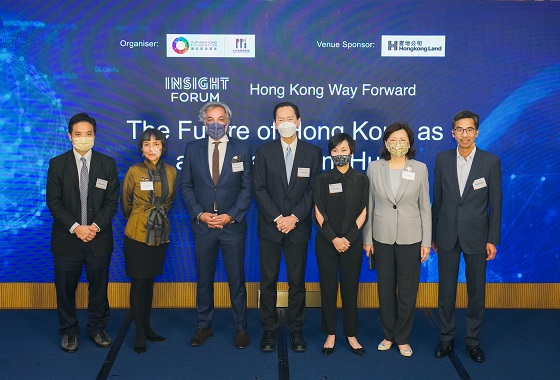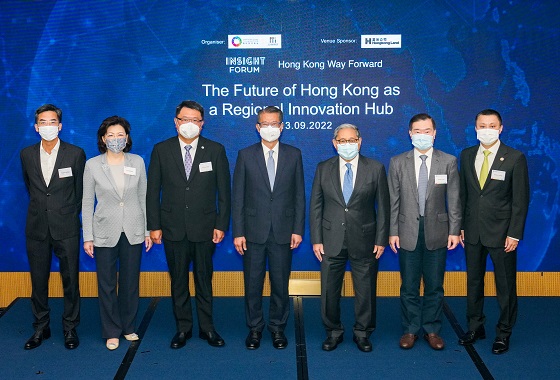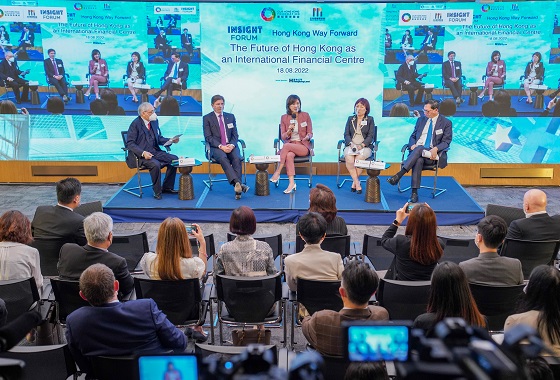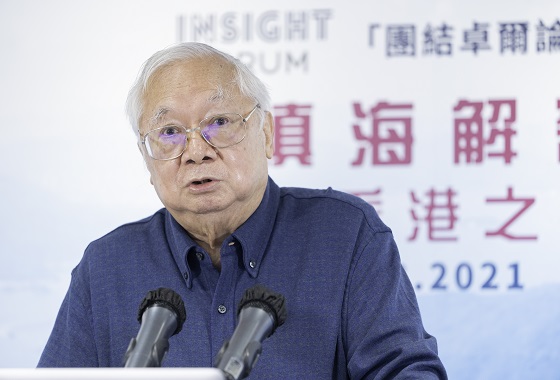OHKF ‘INSIGHT FORUM’ Series - Professor Hsin-kang Chang
‘Vibrancy of Civilisations —
Historical Perspectives and Future Way-out’
In the course of globalisation, conflicts among countries and civilisations have become more visible in recent years. The once-in-a-century Covid-19 pandemic has further triggered mutual recriminations internationally. Our Hong Kong Foundation (OHKF) organised the 13th INSIGHT FORUM, in which Professor Hsin-kang Chang, President-Emeritus of City University of Hong Kong, was invited to speak on ‘Vibrancy of Civilisations—Historical Perspectives and Future Way-out’. Professor Chang undertook a historical review of human civilisation developments, pointing out that humankind shares a single origin with the world co-owned by all peoples. Harmonious co-existence, international cooperation, and complementation among civilisations are essential conditions for humankind to build a great and new world together.
Integration of Civilisations is a Common Phenomenon and Hong Kong’s Multiculturalism is Worth Celebrating
The Clash of Civilisations, a thesis proposed by American scholar Dr Samuel Phillips Huntington, has been widely quoted for a diagnosis of the causes for world order and disputes, and even to predict future developments. Dr Huntington argued that after the Cold War, the global population would be clustered along cultural and religious lines. He envisioned future conflicts among civilisations will be primarily touched off by religious differences, be them Christianity, Islam, Hinduism, Buddhism, and the like. In addition, many subscribe to the notion that the future world order will be hinged on how the western Christian civilisation engages and interacts with Islamic and Chinese civilisations.
Citing Huntington’s thesis, Professor Chang ascribed the Seven Crusades from the 11th to the 13th century to be typically a ‘clash of civilisations’. He added that, however, major wars in ancient Asian history, feudal separatism of Europe in the Middle Ages, and two World Wars in modern times, could hardly be attributed to civilisation clashes, but instead power struggles of political groups and various forces.
Contrary to conflicts, mutual learning and integration are more common among civilisations. Professor Chang envisaged that mutual exchanges and learning between civilisations in areas spanning military technology, culture and art, governance, and inhabitation have taken place over a long period of time, with the interaction between clash and integration characterising the development of civilisations overtime. Mutual learning and gradual integration among civilisations are common historical phenomena.
Professor Chang believed that since the British colonisation, Hong Kong has witnessed a harmonious co-existence of and interaction between Western European, East Asian, and South Asian civilisations, with few signs of conflicts. Racial, cultural, and custom harmony in Hong Kong testifies a fusion of East and West that embraces tolerance and multiculturalism, something worth celebrating and advocating for a wider consensus in society.
Covid-19 Pandemic: A Time for Reflection
2020 saw the outbreak of Covid-19 that raged to be a global pandemic, seriously threatening humans irrespective of their civilisations and religious backgrounds. Professor Chang said the timely production of vaccines reflects the scientific progress of mankind, but cautioned that humans have yet to appreciate, adapt, and leverage nature well enough. Humans should be more respectful for nature, and the Covid-19 pandemic is just a timely reminder for reflection. ‘What I made of 2020 is: thinking intently about whether we should keep on fighting each other or instead collaborate to overcome and adapt to the difficulties presented by nature,’ said Professor Chang.
Solving Problems Together is the Only Way-out, as Humankind is a Community with a Shared Future
After more than two decades of globalisation, a de-globalisation backlash has finally gained ground recently, with Professor Chang pointing to the consequential, yet unexpected rise of localism in certain regions. As all countries must face together the problems of global warming, pandemics, nuclear safety, terrorism, etc., the notion of ‘a community of shared future for mankind’ has also emerged for many years, it is high time humans reflected on the common problems. Living in the same world, with the sea level rising fast resultant of global warming, any further conflicts will just be meaningless, if cities like Shanghai, Hong Kong, New York, and London are all gone,’ Professor Chang cautioned.
Professor Chang emphasised that civilisations integration is historically more common than conflict, and the Silk Road is the best example. ‘Different peoples and civilisations should learn from each other for greater cultural fusion. This is what society or humankind should achieve in the future. If we wish to leave a better world for future generations, then we should seek common grounds amid differences, and jointly cope with current problems.’
‘A Shared World for Everyone’ and ‘Harmony in Diversity’ are the Best Options for Humankind
Looking ahead to the decades to come, Professor Chang believed the world order would not be significantly influenced by the clash of civilisations. However, if countries, regions, and different civilisations are to be mutually dependable and learning from each other, then joint efforts of leaders and elites in the society will be necessary.
Professor Chang stressed that global cooperation for joint prosperity is a forceful driver for countries around the world. How can we create a better life for everyone in the world? ‘A Shared World for Everyone’ and ‘Harmony in Diversity’ are the best options.
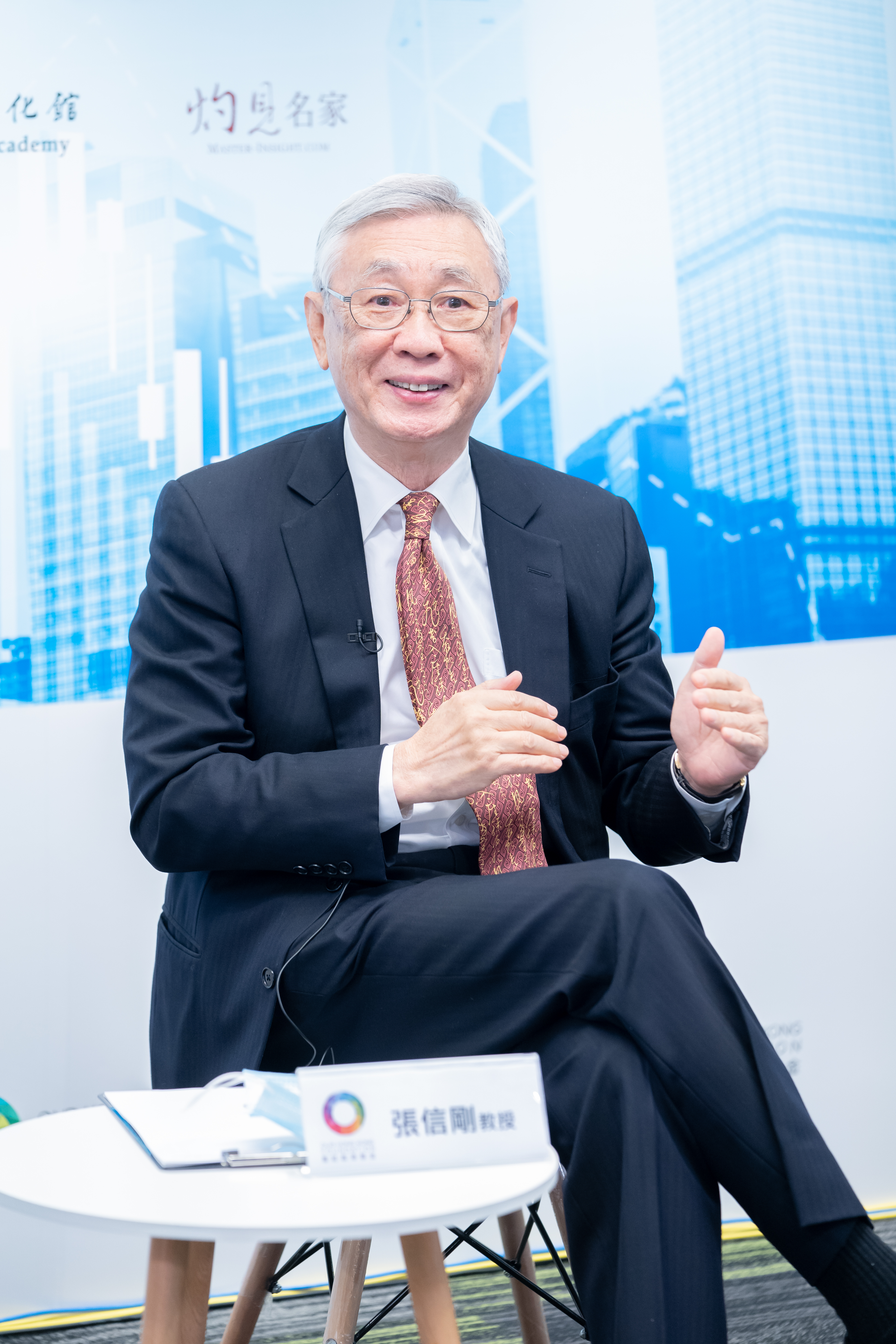
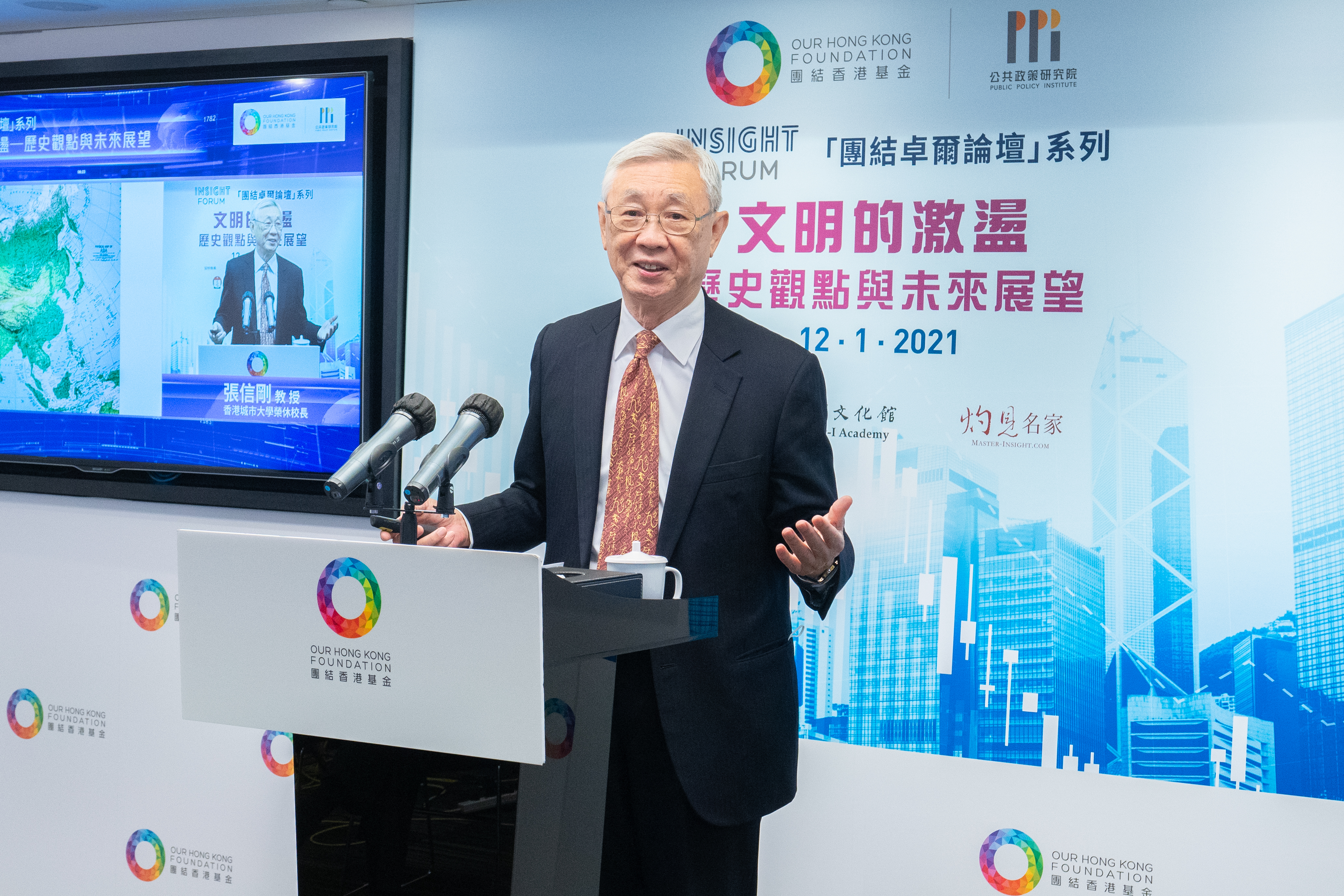
‘Vibrancy of Civilisations—Historical Perspectives and Future Way-out’:
Full live webinar: https://youtu.be/cLy1fQsS6jQ?t=389
